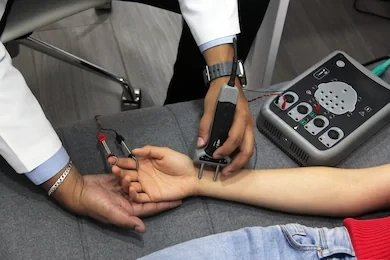Navigating the Use of Diagnostic Tools in Physiotherapy Assessment
Introduction to Diagnostic Tools in Physiotherapy
Physiotherapy, a field where precision meets care, significantly benefits from diagnostic tools ensuring treatments are effective and tailored to individual needs. Understanding these tools demystifies the process for patients and highlights advancements leading to better outcomes. At Proactive Health, our Physiotherapy services are designed with this precision and care in mind, aiming for your swift and effective recovery.
The Importance of Accurate Diagnosis in Physiotherapy
Setting the Stage for Effective Treatment
An accurate diagnosis is the cornerstone of a successful rehabilitation journey, crucial for developing an effective treatment plan. Proactive Health excels in this, employing a variety of diagnostic tools to guide our Physiotherapy approaches.
Enhancing Patient Outcomes through Precision
Precision in diagnosis leads to precision in treatment. By identifying issues accurately, our physiotherapists tailor methods to address specific problems, using advanced techniques and technologies.
Overview of Diagnostic Tools in Physiotherapy
From Traditional to Cutting-Edge Techniques
Physiotherapy diagnostics range from traditional tools to cutting-edge technologies like ultrasound imaging, embodying the range of services offered at Proactive Health, from Registered Massage Therapy to Kinesiology and beyond.
Integrating Technology in Patient Assessments
The integration of technology in assessments has revolutionized diagnostics, a principle we embrace at Proactive Health by offering services like Fascial Stretch Therapy and Active Rehab, ensuring a comprehensive evaluation of your condition.
Setting the Stage for Effective Treatment
An accurate diagnosis is the cornerstone of a successful rehabilitation journey, crucial for developing an effective treatment plan. Proactive Health excels in this, employing a variety of diagnostic tools to guide our Physiotherapy approaches.
Enhancing Patient Outcomes through Precision
Precision in diagnosis leads to precision in treatment. By identifying issues accurately, our physiotherapists tailor methods to address specific problems, using advanced techniques and technologies.
Overview of Diagnostic Tools in Physiotherapy
From Traditional to Cutting-Edge Techniques
Physiotherapy diagnostics range from traditional tools to cutting-edge technologies like ultrasound imaging, embodying the range of services offered at Proactive Health, from Registered Massage Therapy to Kinesiology and beyond.
Integrating Technology in Patient Assessments
The integration of technology in assessments has revolutionized diagnostics, a principle we embrace at Proactive Health by offering services like Fascial Stretch Therapy and Active Rehab, ensuring a comprehensive evaluation of your condition.
Core Diagnostic Tools in Physiotherapy Practice
Common Evaluation Methods and Their Applications
Physical examination tools form the cornerstone of any assessment, with specific technologies like ultrasound imaging and electromyography (EMG) offering deeper insights, mirroring the broad range of treatments available at Proactive Health, including our specialized Bodyworker service.
Physical Examination Tools
The cornerstone of any physiotherapy assessment involves physical examination tools. These instruments help therapists evaluate the physical aspects of a patient’s condition, providing valuable data that forms the basis of any treatment plan.
Goniometers for Range of Motion
Goniometers are pivotal in measuring the range of motion in joints, an essential aspect of assessing flexibility and mobility. This simple yet effective tool provides objective data, aiding in the diagnosis and monitoring of patient progress.
Dynamometers for Muscle Strength
Dynamometers offer a quantifiable measure of muscle strength. By assessing the force exerted by a muscle or group of muscles, therapists can identify areas of weakness that need strengthening, ensuring targeted and efficient rehabilitation.
Technological Advances in Diagnostics
Ultrasound Imaging for Soft Tissue Assessment
Ultrasound imaging represents a leap forward in the ability to visualize soft tissues in real-time. This non-invasive technique allows for the assessment of muscle, ligament, and tendon health, providing a clear picture of the affected area.
Electromyography (EMG) for Muscle Activity
EMG is a sophisticated diagnostic tool that measures the electrical activity produced by muscles. It’s particularly useful in diagnosing neuromuscular disorders and assessing muscle responsiveness, playing a crucial role in both diagnosis and the subsequent tailoring of treatment plans.
Specialized Diagnostic Tools and Their Impact
Physiotherapy extends beyond general treatment to encompass specialized diagnostic tools designed for specific conditions. These tools not only enhance the accuracy of diagnoses but also the effectiveness of subsequent treatments.
Niche Tools for Specific Conditions
Posturography for Balance and Stability
Posturography is a sophisticated tool used to assess balance and stability, particularly beneficial for patients with vestibular disorders or balance impairments. By providing detailed information on how individuals maintain their balance in various conditions, therapists can tailor rehabilitation exercises to improve stability and prevent falls.
Functional Movement Screening (FMS) for Movement Patterns
The Functional Movement Screening is a set of seven specific tests that assess the quality of movement patterns. It’s instrumental in identifying limitations and asymmetries that could potentially lead to injuries. FMS is widely used in sports physiotherapy to optimize performance and minimize the risk of sport-related injuries.
The Role of Wearables and Mobile Apps
Enhancing Remote Assessments and Monitoring
Wearables and mobile apps have transformed the landscape of physiotherapy by enabling remote assessments and continuous monitoring of patients’ progress. These tools allow for the collection of real-time data on physical activity, movement patterns, and even vital signs, making it possible to adjust treatment plans dynamically based on patient progress.
Personalizing Patient Care with Data Analytics
The integration of data analytics with wearables and mobile apps personalizes patient care to an unprecedented level. By analyzing the vast amounts of data collected, physiotherapists can identify trends, predict outcomes, and tailor rehabilitation programs to the unique needs and responses of each patient.
Best Practices in Utilizing Diagnostic Tools
The effective use of diagnostic tools in physiotherapy requires adherence to best practices that ensure accuracy, reliability, and ethical considerations.
Ensuring Accuracy and Reliability in Assessments
Calibration and Maintenance of Equipment
Regular calibration and maintenance of diagnostic tools are crucial to ensure their accuracy and reliability. This involves adhering to manufacturers’ guidelines, performing routine checks, and promptly addressing any issues to prevent inaccuracies in patient assessments.
Continuous Professional Development for Practitioners
Physiotherapists must engage in continuous professional development to stay updated on the latest diagnostic tools and techniques. Ongoing training ensures that practitioners can effectively utilize these tools to enhance patient care.
Ethical Considerations and Patient Consent
Informed Consent in the Use of Diagnostic Tools
It’s imperative to obtain informed consent from patients before using any diagnostic tools. This involves explaining the purpose, procedure, and any potential risks associated with the assessment, ensuring that patients are fully aware and agreeable to the process.
Maintaining Patient Privacy and Data Security
With the increasing use of digital tools in physiotherapy, protecting patient privacy and securing personal health data is paramount. Adhering to data protection laws and implementing robust security measures are essential to maintain trust and confidentiality in the therapist-patient relationship.
Frequently Asked Questions (FAQ)
Why is diagnosis important in physiotherapy?
Diagnosis in physiotherapy is the cornerstone of effective treatment. It enables therapists to understand the root cause of a patient’s condition, ensuring that the treatment plan is specifically tailored to address their unique needs. Accurate diagnosis helps in setting realistic goals, predicting outcomes, and monitoring progress, ultimately leading to more successful rehabilitation and recovery.
What are the evaluation methods used in physiotherapy?
Physiotherapy encompasses a wide array of evaluation methods to assess a patient’s condition thoroughly. These methods include:
- Physical Examination: Involves assessing movement, strength, flexibility, and other physical attributes through various manual tests.
- Functional Assessments: Such as the Functional Movement Screen (FMS), to evaluate movement patterns and identify potential risks for injury.
- Technological Diagnostics: Including ultrasound imaging and electromyography (EMG), which offer deeper insights into the musculoskeletal and nervous systems.
- Patient-reported Outcome Measures (PROMs): Questionnaires that help gather information on the patient’s perception of their condition and its impact on their daily life.
What is diagnostic physiotherapy?
Diagnostic physiotherapy refers to the use of various assessment tools and techniques to diagnose the nature and extent of a patient’s condition. It encompasses a holistic approach, considering not just the physical symptoms but also the impact on the patient’s lifestyle and well-being. The aim is to gather comprehensive information that guides the development of a personalized treatment plan.
What assessments do physiotherapists use?
Physiotherapists employ a broad spectrum of assessments to ensure a comprehensive evaluation of a patient’s condition, including:
- Physical Tests: To measure strength, flexibility, and range of motion.
- Balance and Coordination Tests: To evaluate a patient’s stability and movement efficiency.
- Posture Analysis: To identify postural deviations that may contribute to pain or dysfunction.
- Gait Analysis: To assess walking patterns and identify issues that may affect mobility.
- Specialized Tools: Such as posturography for balance-related conditions and wearable technology for continuous monitoring of physical activity and recovery progress.
For personalized care and the latest in diagnostic tools in physiotherapy, consider booking an appointment with Proactive Health. Our comprehensive services include Physiotherapy, Registered Massage Therapy, Kinesiology, Fascial Stretch Therapy, Active Rehab, and Bodyworker sessions. Start your journey towards optimal health and recovery today by filling up this form or contacting the clinic directly.



